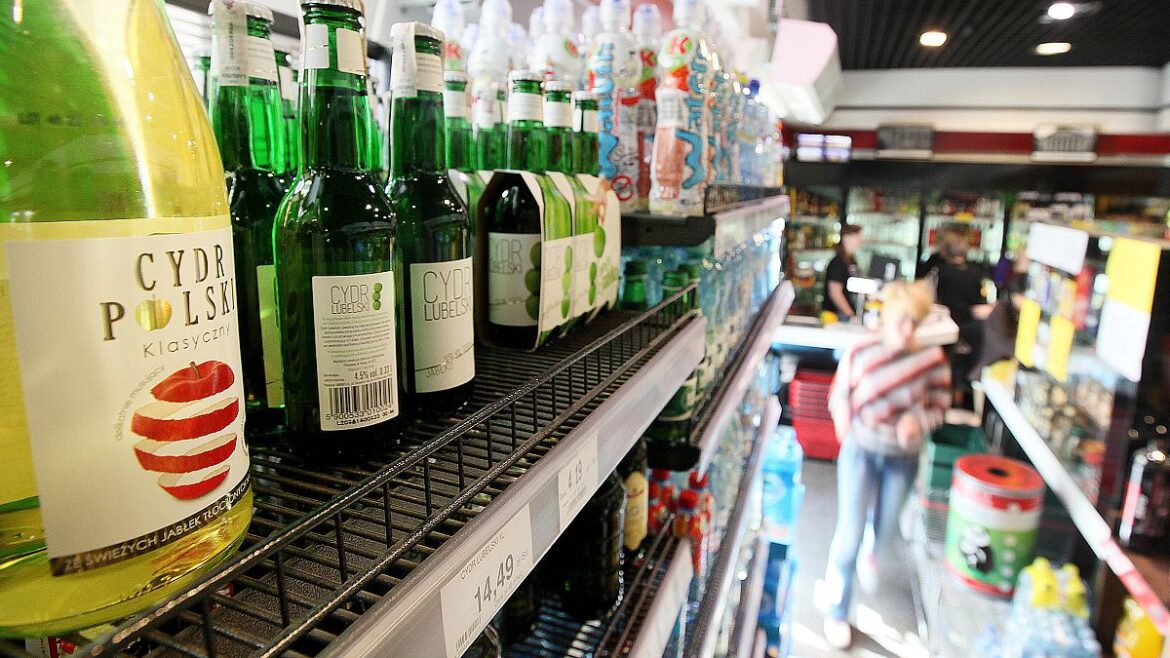Alcoholic drinks remain popular in the Eastern European country despite criticism. According to a Eurostat survey, Poland will be Europe’s third largest producer of beer in 2023, and the country is also a major exporter of vodka.
The Polish government has decided to tighten its laws on the sale of alcohol to prevent minors from buying drinks late at night in stores open 24/7, such as gas stations .
These new rules follow the increase in the number of road accidents and other accidents involving young people under the influence of alcohol.
Selling alcohol to minors is illegal in Poland and punishable by a large fine or up to a month in detention. However, under current regulations, sellers are allowed – but not required – to verify the buyer’s age on their documents. This verification will now be mandatory.
Measurements will also ban the sale of alcohol between 10 p.m. and 6 a.m. at gas stationswhere it is currently possible to obtain it twenty-four hours a day.
“Sellers will have to be more attentive and more responsible in their role,” Izabela Leszczyna, Polish Minister of Health, told Polish radio channel Radio Zet on Thursday. Work on the new regulations is almost complete and will be accelerated, Leszczyna assured.
Alcohol as a child’s snack causes outcry
The sale of alcohol to minors is a hot topic in Poland. Earlier this week, Poland’s deputy health minister resigned after failing to ban a range of alcohol-filled squeeze bags that resemble children’s snacks from supermarket shelves.
This drink – called Voodoo Monkey – is produced by Owolovo, a Polish company which also produces various non-alcoholic fruit drinks and snacks in tubes. The company has since apologized and announced that the product will no longer be sold.
Szymon Hołownia, speaker of the Polish Parliament, called the product “absolute evil” in a Facebook post on Monday.
Hangovers and health problems
This is not the first time that Poland has been involved in a heated debate over alcohol.
In 2022, Jarosław Kaczyński, leader of the right-wing populist Law and Justice party – and former deputy prime minister – sparked controversy after attributing the country’s low birth rate to women’s alcohol consumption.
“If, for example, the situation remains such that, up to the age of 25, girls, young women, drink the same amount of alcohol as their peers, there will be no children” , Mr. Kaczynski told supporters at a political rally ahead of the 2022 presidential campaign.
The comments sparked outrage among women’s rights groups, many of whom instead pointed to Warsaw’s highly restrictive abortion policy as a factor influencing the much-maligned trend.
Kaczyński’s Law and Justice party, or PiS, was then driven from power by a centrist alliance formed by the Civic Coalition and two other smaller political groups last year.
Despite criticism, alcoholic beverages remain popular in the Eastern European country. According to a Eurostat study, Poland will be the third largest beer producer in Europe in 2023, and the country is also a major exporter of vodka.
This is a very lucrative industry, taxes on alcohol sales bringing in some 13 billion zlotys (3 billion euros) to the state coffers.
Although alcohol consumption generally fell by 0.6 liters between 2010 and 2020 in Europe, it increased by one liter per year for people aged over 15 in Poland during the same period.
However, according to experts, the losses linked to premature deaths, absenteeism and accidents are much greater.
Additional sources • adaptation: Serge Duchêne



